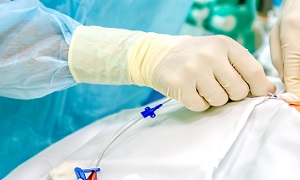Electrophysiology (EP) study
Electrophysiology (EP) study is a test performed to assess your heart’s electrical system or activity and is used to diagnose abnormal heartbeats or arrhythmia. The test is performed by inserting catheters and then wire electrodes, which measure electrical activity, through blood vessels that enter the heart.
What are the indications of Electrophysiology test?
- Electrophysiology test is used to determine where an arrhythmia or abnormal heartbeat is coming from.
- The electrophysiology results determines whether a patient needs medicine, a pacemaker or surgery.
The Electrophysiology Procedure
Before the procedure
During the Procedure
Electrodes are placed on the chest and back of the patient which are connected to the monitoring equipment. A blood pressure cuff is placed on the upper arm of the patient to monitor your blood pressure. A local anaesthesia is administered at the site where catheters are inserted so that the patient does not feel any discomfort or anxiety during the procedure. One or more catheters, which are thin, long, flexible wires are inserted into a large vein in the groin or neck which are advanced to the heart. The positioning of catheters inside the heart will be monitored.
Sometimes, medications are given to induce arrhythmia so that the doctors can treat it.
There are two parts to the EP study:
- Recording the heart’s electrical signals to assess the electrical function.
- Pacing the heart to bring on certain abnormal rhythms for observation under controlled conditions.
After the procedure
- Don’t lift heavy objects more than 10 pounds for the first week.
- Stretch your legs and walk a few minutes to prevent formation of blood clots in your legs.
FAQs
1. How long does an electrophysiology study take?
An EP study may take three to six hours, depending on your condition.
2. What is the success rate of electrophysiology study?
The success rate of electrophysiology study is about 95-99%.
3. Is EP study painful?
An EP study is not painful, but the patient may feel uncomfortable as the heartbeat is sped up or slowed down

